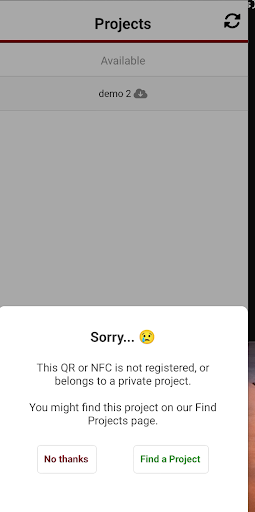Using NFC tags
NFC tags allow you to enter trap records quickly via Near Field Communication, just tap and go.
Where can I get NFC tags? NFC tags are available online in many shapes and formats depending on your needs (think waterproof, flexible, etc.) It is critical to get a supported type however, see supported types.
How do I enabled NFC?
For Android:
- Open Settings.
- Go to Connections (or Connected Devices depending on your device).
- Select NFC or Near Field Communication.
- Toggle NFC to On.
Note: The steps may vary slightly by manufacturer. If you don't see the option, your phone may not support NFC.
For iPhone:
- iPhone XS, XR, and later: NFC is enabled by default, no need to manually enable it.
- iPhone 7 to iPhone X: NFC is also on by default, but only works with apps that support NFC.
Note: iPhones do not read empty tags. You must write to the tag using the app before it can read a tag.
Supported NFC tag types
NXP - NTAG213, NXP - NTAG216, NXP - Mifare Ultralight
Note these are confirmed working. Other types may also work.
Adding NFC chips to your installations
Choose the trap to which you want to add the NFC code and open up the add catches form by tapping it.
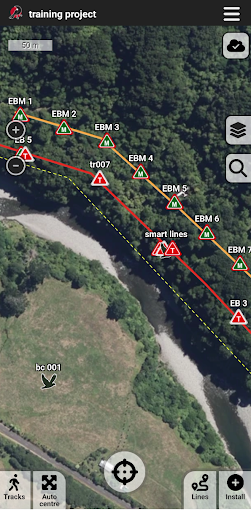 |
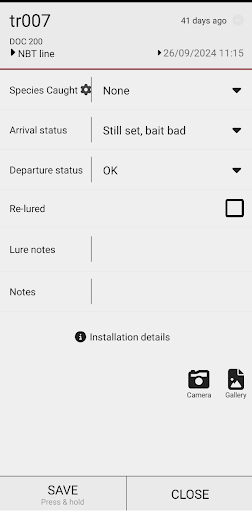 |
Click on the “Installation details” and scroll to the bottom of the form to the “Manage NFC,” this will open the NFC page where you can Write, Erase, or Lock a NFC code.
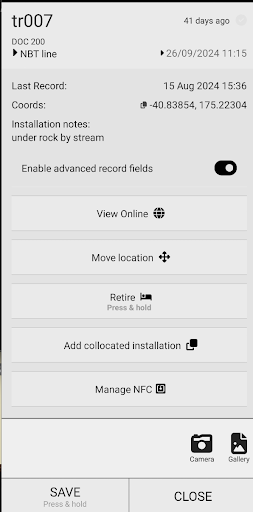 |
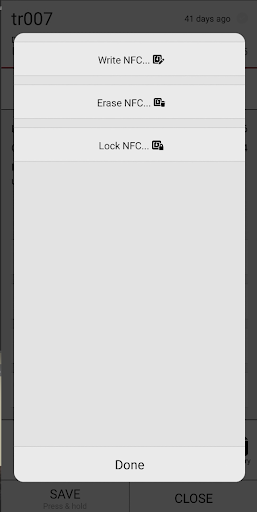 |
To write a code, select the tab, “write NFC,” place the disc to be written on a flat surface, and hold the phone closely over it; you may need to slowly move it around to allow the phone to read the chip. When the phone recognises the chip, it will make an electronic chime or vibrate once it has created a link to the installation.
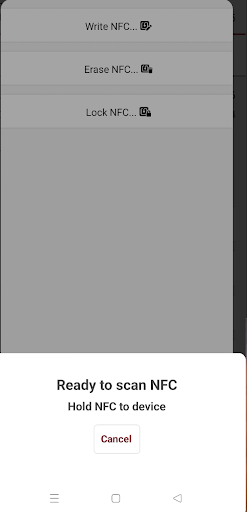 |
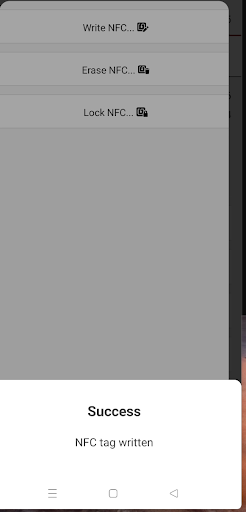 |
Click on the screen, then select “done” to return to the add catches form, where you can select close to close the screen.
Fix the chip to your installation.
To open the catch form for the installation, simply hold your phone over the chip until it recognises it, and select trap.nz to open it, and you will be taken to the catch form if you are associated with the installation.
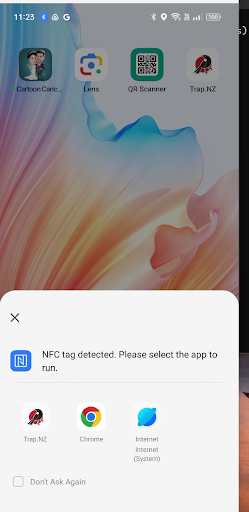 |
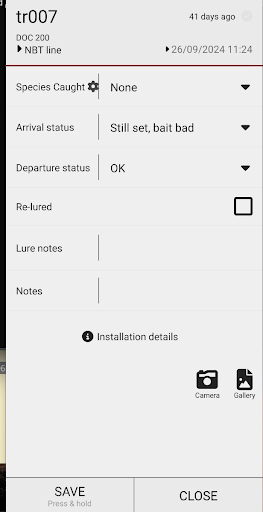 |
If you have not been assigned to this installation or are not a project member, You will see the following messages.
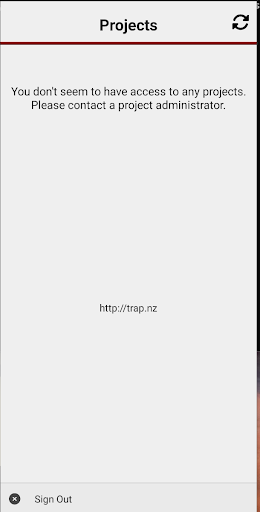 |
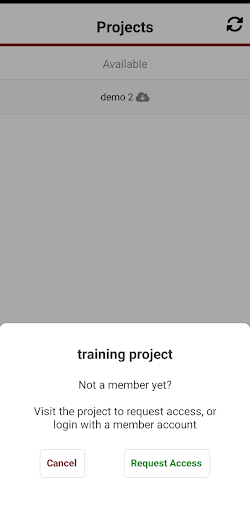 |
If the project is registered as a private project, you will see this message.



